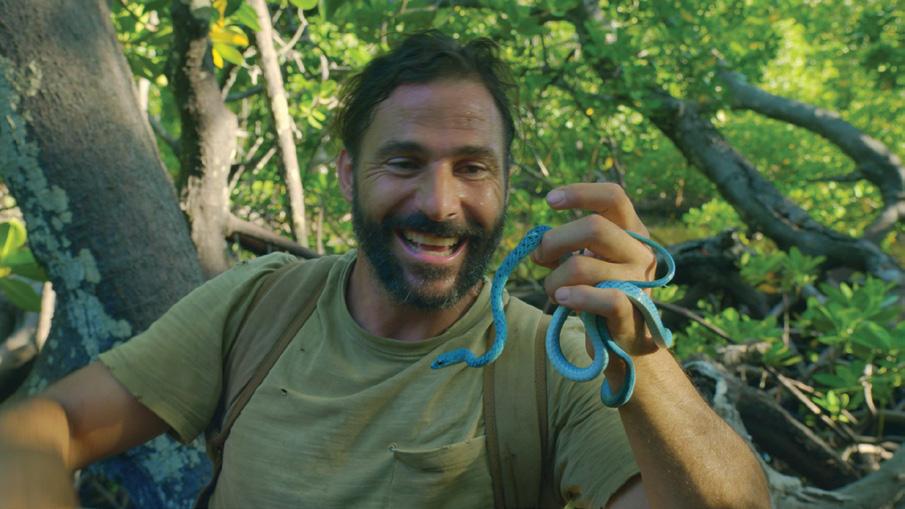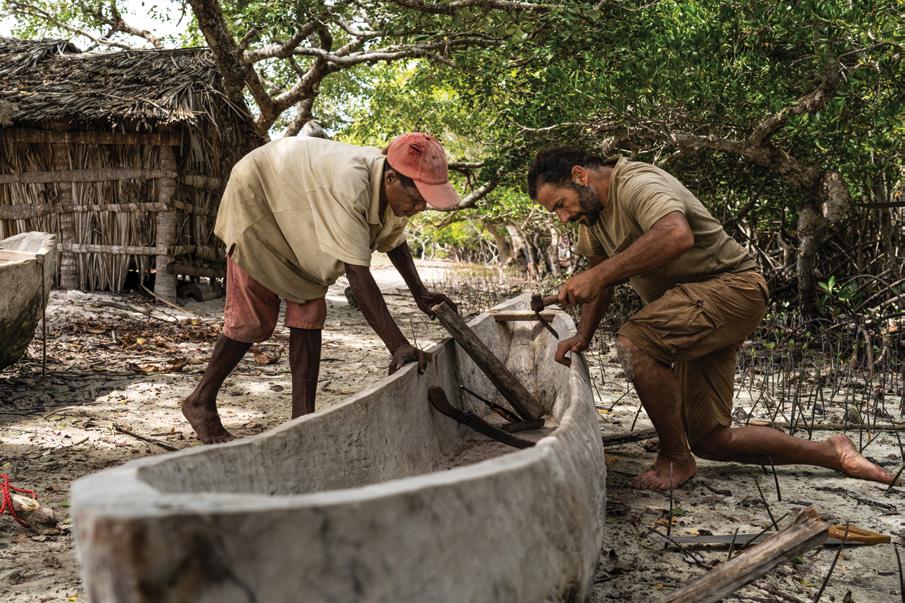
4 minute read
Unleash your zest for adventure!
AKootenai and Salish Native American by descent, Hazen Audel, is an adventurer, artisan and biologist. He has spent the last 30 years studying nature and anthropology in the field: he has integrated himself into communities and learnt from their practices, living in some of the most remote places on earth and surviving in some of the harshest environments.
Hazen documents his adventures befriending indigenous people in remote regions of the world and living with them. Season 8 is the latest in his hit series Primal Survivor on National Geographic. Fascinated by African cultures and passionate about nature, Hazen says he loves to see wildlife in the most isolated and remote regions on earth and is intrigued by how people living there survive,thrive and raise their families.
Facilitated by Multichoice Namibia, Hazen engaged with African Media from Johannesburg, South Africa. “We all have a zest for adventure – which is definitely better than a cocaine habit”, he said and explained that he depended on the various tribes to get him as far as he did.

MOST MEMORABLE EXPERIENCE
"In Namibia? Oh my gosh!”, he exclaimed when asked about his most memorable experience in the Land of the Brave. He got to experience life with the OvaHimba and Khoisan communities and describes them as warm and very accommodating.
Hazen lived with the Khoisan people for three weeks. They stand out from all the people he came across all over the world, he says. “Their knowledge and where they live is just mind-boggling.” He has used their survival techniques, from building a temporary shelter against the harsh desert winds to leading cattle through the wilderness from one village to another. “The way Westerners are trying to raise their families is all wrong. You have to raise your children in a tribe”, Hazen says. “Ubuntu is a common theme in this enormous continent of Africa. Everybody has some sort of support for one another even though they come from different lifestyles, have different languages and different cultures. It’s something I want to carry with me wherever I am in the world”.

ECO AND CULTURAL TOURISM OFFERINGS
At the 21st African Wildlife Consultative Forum in October last year, the Minister of Environment, Forestry and Tourism, Pohamba Shifeta, reiterated Namibia’s position on eco and cultural tourism. “We have friendly people with their good culture, our wildlife is indigenous and moving freely, we have good infrastructure and hospitality, good food and lots of other activities to offer in the form of eco and cultural tourism”, Shifeta said.
The Minister also pointed out that rural communities are critical when it comes to securing a future for wildlife outside of protected areas in Africa and elsewhere. “In Southern Africa”, Shifeta said, “the community-based natural resource management (CBNRM) programme is the avenue through which communities participate in and benefit from wildlife conservation initiatives”. According to Shifeta, the CBNRM model has so far worked well for the conservation of wildlife and benefiting communities living with wildlife. He added, however, that innovative approaches must be found through governance and other mechanisms to raise benefits to household levels, especially now that households are under pressure due to unfavorable economic conditions.
To experience true Namibian hospitality one has to make time to visit this southern African country with its diverse cultures and one of the most accommodating people in the world. As for Hazen, well, he has learnt a lot through his travels and is now pretty much living off his land growing his own food and waking up every morning excited to see the unknown.










